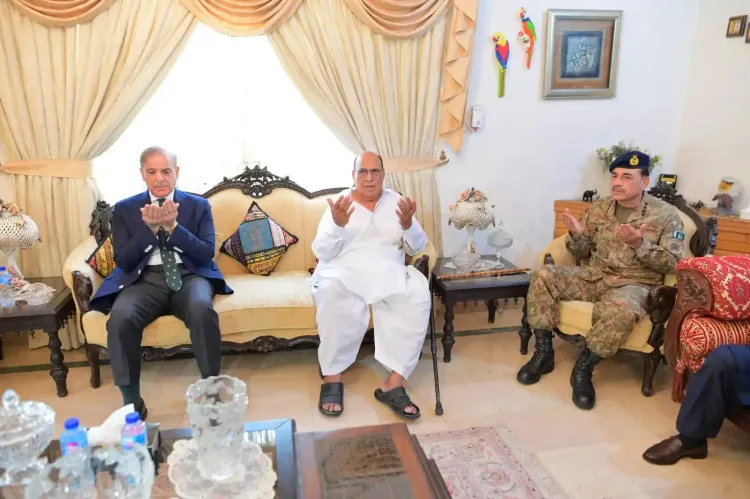Is Pakistan's Army Chief Asim Munir Promoted to Field Marshal After Humiliation in Operation Sindoor?

Synopsis
Key Takeaways
- General Asim Munir promoted to Field Marshal after Operation Sindoor.
- First Army General promoted post-defeat in Pakistan's history.
- Analysts view the promotion as a self-initiative by Munir.
- Operation Sindoor marks a strategic shift for India against Pakistan.
- International analysts recognized India's military effectiveness during the operation.
Islamabad, May 20 (NationPress) In a historic decision following India’s impactful Operation Sindoor, which targeted the terrorist infrastructure deep within Pakistan after the Pahalgam massacre, the Cabinet of Pakistan, led by Prime Minister Shehbaz Sharif, announced on Tuesday the promotion of the Chief of Army Staff (COAS) General Asim Munir to the rank of Field Marshal.
According to Geo News, the government endorsed this promotion for General Munir, recognizing his role in maintaining the security of the nation and his strategic leadership during 'Operation Bunyan-um-Marsoos.' His commendable military leadership, bravery, and unwavering dedication to safeguarding Pakistan's sovereignty and territorial integrity have also been highlighted.
At 57, General Munir becomes only the second individual to achieve the rank of five-star field officer in Pakistan's 78-year history. The first was Ayub Khan, who declared himself Field Marshal in 1959 following a military coup.
While General Munir expressed his gratitude to Allah and dedicated this honor to the nation, reactions within Pakistan indicated skepticism, as this is the first instance of an Army General receiving a promotion after a defeat in conflict.
Some analysts suggested that this promotion was a self-initiated elevation by Munir following the humiliating loss in Operation Sindoor. Others believe that this move reinforces his narrative of victory and strengthens his grip on Pakistan.
A former Army officer commented on social media, "Musharraf 2.0 loading!" regarding the implications of this promotion.
The Shehbaz Sharif administration also chose to extend the tenure of Air Chief Marshal Zaheer Ahmad Babar Sidhu, acknowledging his contributions during the recent conflict, as reported by Samaa News.
Notably, the international community recognized the military superiority exhibited by India during Operation Sindoor, which demonstrated India's capacity to strike any target in Pakistan at will, including terror sites and airbases.
In stark contrast, Pakistan was unable to penetrate any defended areas within India.
Operation Sindoor marked a pivotal shift in India's military strategy, culminating in a rapid and clear victory over Pakistan. Esteemed international analysts, such as Tom Cooper, John Spencer, and Jennifer Zeng, provided in-depth evaluations of India's performance during this conflict, emphasizing the strategic elements that led to India's success.
Tom Cooper, an Austrian military historian, described India's air campaign as a "decisive victory," noting that Pakistan's failure to respond effectively highlighted India's strategic effectiveness. He further argued that Pakistan's deterrence strategy faltered, as India escalated its actions in response to Pakistan's provocations. The cessation of fighting was initiated by Islamabad, which requested a ceasefire after sustaining significant losses, likely influenced by dwindling stock levels of critical munitions like attack UAVs.
John Spencer, Chair of Urban Warfare Studies at the Modern War Institute, praised India's approach as a demonstration of both strategic restraint and assertiveness. He emphasized that Operation Sindoor redefined India's red lines, categorizing terrorist actions from Pakistani territory as acts of war. He stated, "India struck back harder but stopped short of full-scale war, exemplifying textbook deterrence: calibrated, controlled, and credible." Spencer characterized Operation Sindoor as a massive victory for India, asserting that India achieved and exceeded its strategic objectives within just four days of calculated military action.










